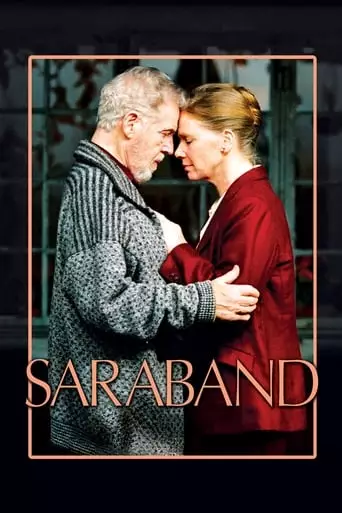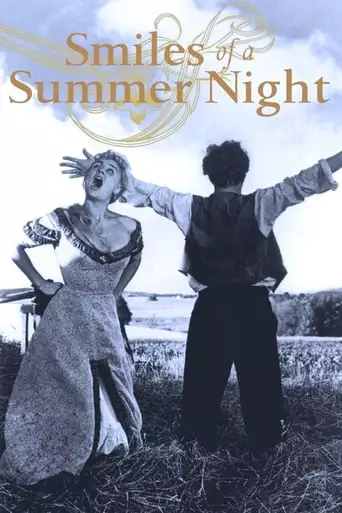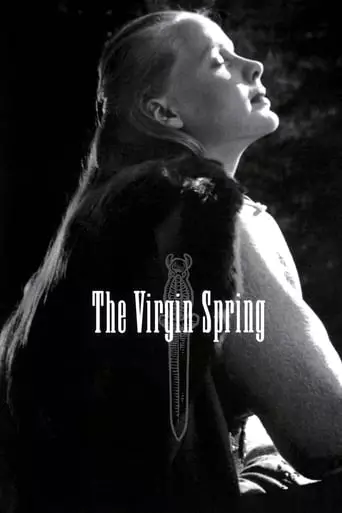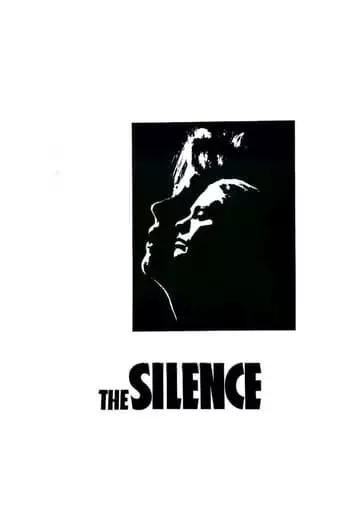When ‘Vogler’s Magnetic Health Theater’ comes to town, there’s bound to be a spectacle. Reading reports of a variety of supernatural disturbances at Vogler’s prior performances abroad, the leading townspeople […]

When ‘Vogler’s Magnetic Health Theater’ comes to town, there’s bound to be a spectacle. Reading reports of a variety of supernatural disturbances at Vogler’s prior performances abroad, the leading townspeople […]

Andreas, a man struggling with the recent demise of his marriage and his own emotional isolation, befriends a married couple also in the midst of psychological turmoil. In turn he […]

Berlin, 1923. Following the suicide of his brother, American circus acrobat Abel Rosenberg attempts to survive while facing unemployment, depression, alcoholism and the social decay of Germany during the Weimar […]

In this sequel to Scenes from a Marriage (1973), we revisit the characters of Johan and Marianne, then a married couple. After their divorce, Johan and Marianne haven’t seen each […]

While vacationing on a remote German island with his pregnant wife, an artist has an emotional breakdown while confronting his repressed desires.

Early in the 20th century, middle-aged lawyer Fredrik Egerman and his young wife, Anne, have still not consummated their marriage, while Fredrik’s son finds himself increasingly attracted to his new […]

In the midst of a civil war, former violinists Jan and Eva Rosenberg, who have a tempestuous marriage, run a farm on a rural island. In spite of their best […]

Devout Christians Töre and Märeta send their only daughter, the virginal Karin, and their foster daughter, the unrepentant Ingeri, to deliver candles to a distant church. On their way through […]

As Agnes slowly dies of cancer, her sisters are so deeply immersed in their own psychic pains that they can’t offer her the support she needs. Maria is wracked with […]

Traveling through an unnamed European country on the brink of war, sickly, intellectual Ester, her sister Anna and Anna’s young son, Johan, check into a near-empty hotel. A basic inability […]
Ingmar Bergman: The Master of Existential Cinema
Ingmar Bergman, born July 14, 1918, in Uppsala, Sweden, is widely regarded as one of the most influential filmmakers in the history of cinema. With a career spanning over six decades, Bergman crafted films that delved into profound themes such as existential angst, human relationships, and the nature of faith. His works, including The Seventh Seal (1957), Persona (1966), and Fanny and Alexander (1982), stand as towering achievements in cinematic art, celebrated for their psychological depth, visual beauty, and philosophical complexity.
Early Life and Artistic Foundations
Bergman grew up in a strict Lutheran household, where his father, a chaplain, imposed a rigid sense of morality. These formative experiences profoundly influenced Bergman’s work, instilling themes of guilt, faith, and spiritual conflict that would permeate his films.
He developed a love for storytelling and theater at an early age, later studying literature and art history at Stockholm University. Bergman began his career in the theater and wrote scripts for Swedish films before transitioning to directing.
The Rise of a Cinematic Auteur
Bergman’s early films in the 1940s and early 1950s, such as Crisis (1946) and Summer Interlude (1951), hinted at his burgeoning talent but did not yet showcase the existential and psychological depth that would define his later work.
Breakthrough: “Smiles of a Summer Night” (1955)
This romantic comedy, exploring love and desire among the Swedish bourgeoisie, earned Bergman international recognition. Its success at the Cannes Film Festival paved the way for his deeper, more introspective films.
Signature Themes and Style
Bergman’s films are characterized by their exploration of existential questions, emotional intensity, and innovative storytelling.
Existential and Spiritual Inquiry: Many of his films grapple with questions of existence, mortality, and the absence of God, reflecting Bergman’s own struggles with faith.
Psychological Depth: Bergman’s characters are often plagued by inner turmoil, with his films offering a raw and honest portrayal of human emotions.
Minimalist Aesthetic: His use of sparse settings, naturalistic lighting, and close-ups created an intimate, theatrical atmosphere that focused on actors’ performances and emotional nuances.
Symbolism and Visual Poetry: Collaborating with cinematographer Sven Nykvist, Bergman used evocative imagery to convey abstract ideas and emotions.
Iconic Films
“The Seventh Seal” (1957)
One of Bergman’s most iconic works, The Seventh Seal is a medieval allegory that follows a knight (Max von Sydow) who plays chess with Death. The film’s exploration of life, faith, and the inevitability of mortality cemented Bergman’s reputation as a philosophical filmmaker.
“Wild Strawberries” (1957)
A poignant meditation on aging and regret, this film follows an elderly professor reflecting on his life during a road trip. Its blend of dream sequences, flashbacks, and reality showcases Bergman’s mastery of narrative innovation.
“Persona” (1966)
A daring exploration of identity and human connection, Persona tells the story of an actress (Liv Ullmann) who falls silent and her nurse (Bibi Andersson), whose personalities begin to merge. The film is lauded for its experimental style and psychological complexity.
“Scenes from a Marriage” (1973)
This intimate portrayal of a disintegrating marriage, starring Liv Ullmann and Erland Josephson, became a touchstone for relationship dramas. Its raw emotional power resonated with audiences worldwide.
“Fanny and Alexander” (1982)
Considered Bergman’s magnum opus, this semi-autobiographical film depicts the lives of two children in a sprawling family drama. It is both a celebration of art and imagination and a somber exploration of loss and suffering. The film won four Academy Awards, including Best Foreign Language Film.
Contributions to Theater
In addition to his film work, Bergman was a prolific theater director, staging acclaimed productions of works by Shakespeare, Strindberg, and Ibsen. His theatrical sensibility influenced his cinematic style, particularly his focus on dialogue and character-driven storytelling.
Collaborations
Bergman frequently worked with a troupe of actors, including Max von Sydow, Liv Ullmann, Bibi Andersson, and Ingrid Thulin, who became central to his cinematic universe. His long-term collaboration with cinematographer Sven Nykvist was equally significant, with Nykvist’s poetic use of light and shadow enhancing the emotional depth of Bergman’s films.
Awards and Legacy
Bergman received numerous accolades during his lifetime, including:
Academy Awards: Three wins for Best Foreign Language Film (The Virgin Spring, Through a Glass Darkly, and Fanny and Alexander).
Palme d’Or at Cannes for The Virgin Spring (1960).
Lifetime Achievement Awards: Recognized by the Academy, the European Film Awards, and other institutions for his contributions to cinema.
Bergman’s influence extends far beyond awards. Directors like Woody Allen, Andrei Tarkovsky, and Lars von Trier have cited him as a major influence, and his films remain a cornerstone of film studies and critical analysis.
Personal Life
Bergman’s personal life was as complex as his films, marked by numerous relationships, five marriages, and nine children. His tumultuous romantic relationships often informed his exploration of love, jealousy, and betrayal on screen.
Bergman retired from filmmaking in the early 2000s and passed away on July 30, 2007, leaving behind an unparalleled legacy.
Conclusion
Ingmar Bergman is a towering figure in world cinema, whose films continue to resonate with audiences and filmmakers alike. His fearless exploration of existential themes, combined with his ability to capture the intricacies of human emotion, ensures his work remains timeless. For those seeking cinema that challenges the mind and stirs the soul, Bergman’s films are an essential journey into the depths of the human condition.